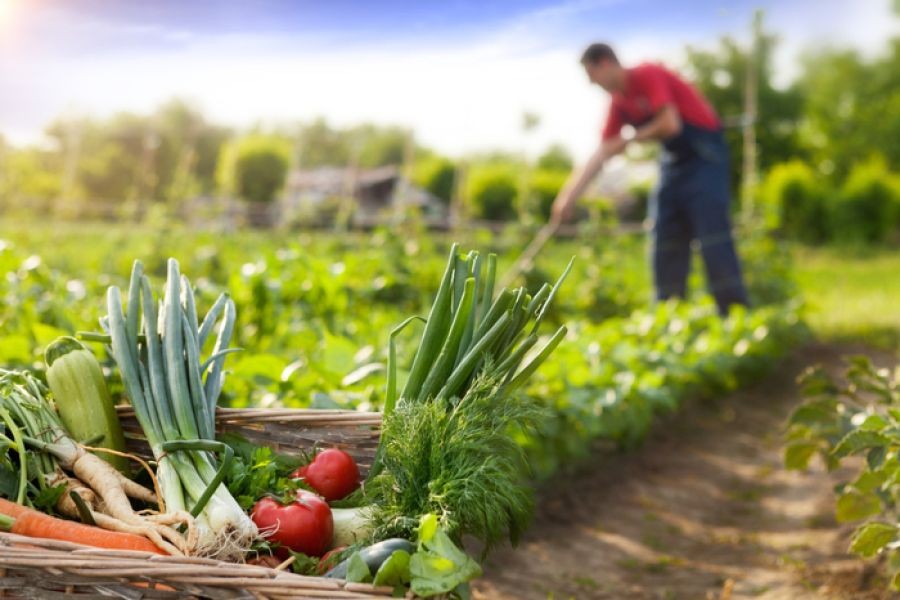In recent years, New Zealand has gained international recognition for its pioneering efforts in sustainable farming practices. As the world grapples with the challenges of climate change and food security, New Zealand's agricultural sector has emerged as a beacon of innovation, driven by a commitment to environmental stewardship and economic sustainability. But what lies beneath this green facade? Is New Zealand truly leading the charge in sustainable agriculture, or are there hidden complexities that need careful examination? This article delves into the truths and myths surrounding New Zealand's sustainable farming practices, offering insights from a tax specialist's perspective.
New Zealand's Sustainable Farming Landscape: A Closer Look
New Zealand's farming industry is a cornerstone of its economy, contributing significantly to the nation's GDP. According to Stats NZ, agriculture, forestry, and fishing contributed approximately 6.4% to the GDP in 2022. The country's unique geographic location and climate provide an ideal environment for diverse farming activities, from dairy and sheep farming to viticulture and horticulture. However, with great potential comes great responsibility. Sustainable farming practices are critical to ensuring the long-term viability of these industries while minimizing environmental impact.
Case Study: Synlait Milk's Path to Sustainability
Synlait Milk, a leading dairy company in New Zealand, faced increasing pressure to adopt sustainable practices due to rising environmental concerns and consumer demand for eco-friendly products.
Problem: Synlait Milk struggled with high carbon emissions and water usage, common challenges in the dairy industry. The company recognized the need to address these issues to maintain market competitiveness and comply with regulatory standards.
Action: In response, Synlait implemented a comprehensive sustainability strategy, focusing on reducing its carbon footprint and water consumption. The company invested in renewable energy sources, improved water management systems, and engaged with local farmers to promote sustainable practices.
Result: Within two years, Synlait achieved a 20% reduction in carbon emissions and a 15% decrease in water usage. These efforts not only enhanced the company's environmental credentials but also resulted in cost savings and increased consumer trust.
Takeaway: Synlait Milk's journey underscores the importance of integrating sustainability into core business operations. For New Zealand businesses, embracing sustainable practices can lead to improved market positioning and long-term profitability.
Debunking Myths About Sustainable Farming in New Zealand
- Myth: "Sustainable farming is not economically viable."
- Reality: Research from the Ministry of Business, Innovation, and Employment (MBIE) shows that sustainable farming practices can increase profitability by reducing input costs and enhancing productivity. For instance, regenerative agriculture has been found to improve soil health, leading to higher yields and reduced fertilizer expenses.
- Myth: "Sustainable farming only benefits the environment, not the farmer."
- Reality: Sustainable practices enhance farm resilience by improving soil fertility and water retention, thus mitigating the impacts of climate variability. Farmers adopting these practices report increased yields and better quality produce, which can command premium prices in the market.
- Myth: "All New Zealand farms are already sustainable."
- Reality: While New Zealand is a leader in sustainability, not all farms have fully adopted sustainable practices. Challenges such as financial constraints and lack of awareness continue to hinder widespread adoption. Government incentives and education programs are crucial in overcoming these barriers.
Pros and Cons of Sustainable Farming Practices
Pros:
- Environmental Benefits: Sustainable farming practices reduce greenhouse gas emissions, improve soil health, and conserve biodiversity.
- Economic Viability: By reducing reliance on chemical inputs and enhancing natural resource efficiency, sustainable farming can lower operational costs.
- Consumer Demand: Increasing consumer preference for eco-friendly products can lead to higher market demand and premium pricing.
Cons:
- Transition Costs: Initial investment in sustainable practices, such as new equipment or training, can be a financial burden for some farmers.
- Knowledge Gaps: Limited access to information and expertise can hinder the effective implementation of sustainable practices.
- Market Access: While demand for sustainable products is growing, accessing these niche markets can be challenging for smaller producers.
Future Trends in New Zealand's Sustainable Farming
Looking ahead, New Zealand's agricultural sector is poised to undergo significant transformations driven by technological advancements and evolving consumer expectations. According to a report by Deloitte, by 2030, digital technologies such as precision agriculture and blockchain will play a pivotal role in enhancing farm productivity and traceability. Additionally, the government's commitment to achieving net-zero emissions by 2050 will further accelerate the adoption of sustainable practices across the industry.
Conclusion
As New Zealand continues to lead the way in sustainable farming, it is imperative for businesses to embrace eco-friendly practices that align with both environmental goals and market demands. The journey towards sustainability is not without challenges, but the potential rewards—economic, environmental, and social—are significant. What steps will your business take to contribute to a sustainable future?
People Also Ask
- How does sustainable farming impact New Zealand's economy? Sustainable farming strengthens New Zealand's economy by enhancing agricultural productivity, reducing environmental costs, and meeting global market demand for eco-friendly products.
- What are the key components of sustainable farming practices? Key components include efficient resource management, soil health improvement, biodiversity conservation, and reduced chemical usage.
- How can New Zealand farmers transition to sustainable practices? Farmers can transition by adopting regenerative agriculture, utilizing renewable energy, and participating in government incentives and educational programs.
Related Search Queries
- Sustainable farming practices in New Zealand
- New Zealand agriculture sustainability
- Regenerative agriculture New Zealand
- Environmental impact of farming in NZ
- Carbon footprint of NZ agriculture
As New Zealand navigates the path towards a sustainable future, the role of tax specialists and industry experts becomes increasingly vital. By understanding the complexities and opportunities within the agricultural sector, professionals can provide valuable insights and strategies to support the transition to a more sustainable and prosperous economy. Share your thoughts and experiences in the comments below!



































BertieCcq8
6 months ago